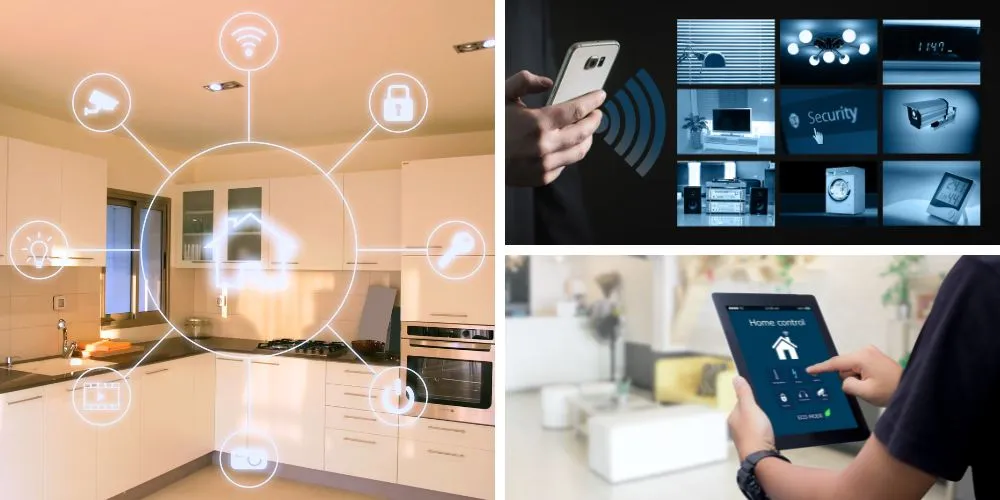Key Points:
- Internet-connected appliances are ushering in a new era of convenience and revolutionizing how we interact with everyday household items.
- AI and machine learning enhance the functionality of appliances, and devices like smart thermostats optimize energy usage.
- The rise of connected devices increases the risk of cyberattacks, but manufacturers are implementing robust security measures.
- Integrating 5G technology will enable faster, more reliable connectivity, paving the way for more advanced applications.
In the rapidly growing landscape of smart technology, internet-connected appliances are becoming a staple in households worldwide, ushering in a new era of convenience and efficiency. Innovative appliances are revolutionizing how we interact with everyday household items.
Smart refrigerators, coffee makers, ovens, and washing machines are integrated into the Internet of Things (IoT) ecosystem, allowing users to remotely monitor and control their appliances via smartphones and voice assistants. This connectivity offers unprecedented convenience, such as preheating the oven on the way home or receiving notifications when laundry is done.
Manufacturers are leveraging advanced technologies such as artificial intelligence (AI) and machine learning (ML) algorithms to enhance the functionality of these appliances. For instance, AI-powered refrigerators can now suggest recipes based on the ingredients inside, track expiration dates, and automatically create shopping lists.
Security and energy efficiency are also significant benefits of Internet-connected appliances. Smart thermostats, for example, learn users’ preferences and adjust the cooling and heating systems to optimize energy usage, potentially reducing energy bills by up to 20%. Smart home security systems, including connected cameras and doorbells, allow homeowners to monitor their properties in real-time, providing peace of mind at home or away.
Despite the advantages, the rise of internet-connected appliances raises concerns about privacy and security. With home devices connected to the internet, the potential for cyberattacks increases. Manufacturers implement robust security protocols and regular software updates to protect user data. Users should use strong, unique passwords and keep their devices updated to mitigate risks.
Smart appliances continue to grow as more consumers recognize the value of integrating devices into their homes. Companies like Samsung, LG, and Whirlpool are leading the charge, constantly innovating and introducing new products that cater to the needs of modern households. As technology advances, the functionality and intelligence of these appliances are expected to improve further, making them an integral part of daily life.
The integration of 5G technology is set to take internet-connected appliances to the next level, offering faster and more reliable connectivity. This advancement will enable even more sophisticated applications, such as real-time diagnostics and maintenance, which can predict and address issues before they become major problems, enhancing the user experience.
Internet-connected appliances transform our lives, offering unprecedented convenience, efficiency, and security. As technology evolves, these smart devices will undoubtedly become an even more essential part of our homes.





